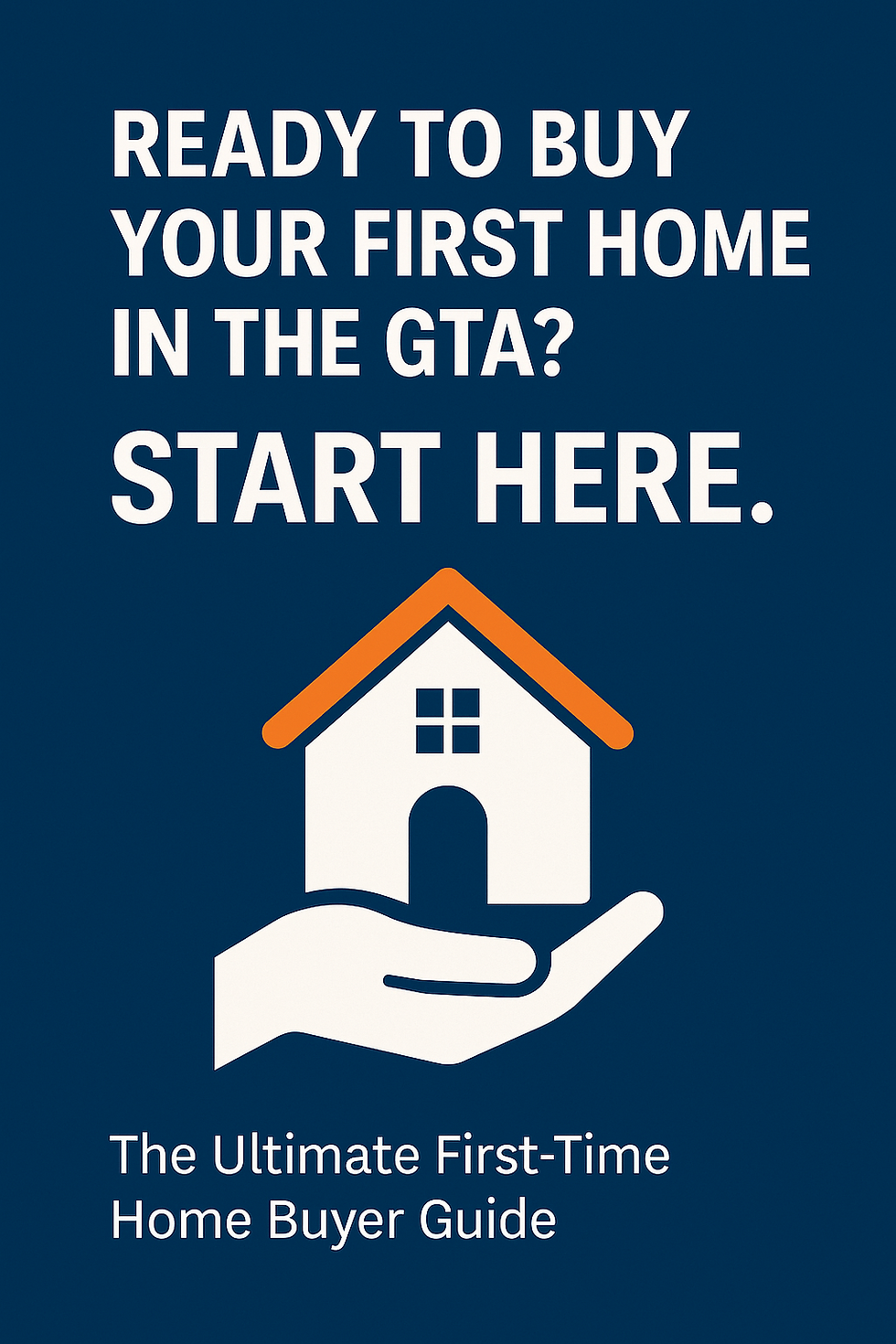The Ultimate Ontario Homeowner Checklist: What to Do After Your Offer Is Accepted
- Gaurav

- Aug 16, 2025
- 4 min read
Updated: Aug 16, 2025
Congratulations—your offer has been accepted! Buying a home is one of the biggest milestones in life, but the work doesn’t stop once the deal is firm.

In Ontario, there are a series of practical, legal, and financial steps you’ll need to take between the offer being accepted and the day you move in.
This guide is your step-by-step Ontario homeowner checklist, covering everything from utilities and insurance to mail forwarding and home maintenance.
1. Transfer Utilities in Ontario: Hydro, Water, and Gas
Before you move in, make sure the utilities are switched into your name. Forgetting this step could leave you walking into a dark or cold house on closing day.
Electricity (Hydro): Contact Hydro One or your local utility provider.
Water: Set up your account with the municipality (City of Toronto, Region of Peel, Halton Region, etc.).
Gas: Most homes in Ontario use Enbridge Gas, but confirm your provider.
👉 Pro Tip: Call at least 2 weeks before closing to ensure no service interruptions.
2. Home Insurance in Ontario: Don’t Wait Until Closing Day
Your lender won’t release mortgage funds without proof of home insurance. Activate your policy well before closing.
What to include in your policy:
Fire and theft protection
Water and sewer backup coverage
Liability insurance
Optional: Overland flood coverage
👉 Money-Saving Tip: Bundle home and auto insurance for a discount. Check with your employer first, many employers have a tie-up with insurance providers and they might give you the best quotes.
3. Internet and TV Services: Book Early for Installation
Internet companies in Ontario get busy during peak moving months. Waiting until the last minute could mean days without service.
Call Bell, Rogers, Cogeco, or your local provider as soon as your closing date is firm.
Ask about moving promotions or seasonal discounts.
Consider switching providers if you can get a better deal.
4. Change Your Address in Ontario: Government and Banks
Updating your address is required by law and ensures your bills and important documents don’t get lost.
Where to update your Ontario address:
Driver’s license and health card through ServiceOntario
Vehicle permit and car registration
Banks and credit cards
CRA (Canada Revenue Agency) for taxes and benefits
Insurance providers
Subscriptions and memberships
👉 Mail Forwarding Tip: Use Canada Post’s mail forwarding service for 4 or 12 months to catch anything you miss.
5. Update Your Car Insurance: Ontario Postal Codes Matter
In Ontario, your postal code affects your car insurance rates. Moving from downtown Toronto to Oakville, for example, can change your premiums significantly.
Call your car insurance provider as soon as your move is confirmed.
6. Home Inspection After Closing: Protect Your Investment
Once you get the keys, walk through the property carefully. Look for:
Missing or disconnected downspouts (can cause basement flooding)
Leaks, cracks, or water damage
Windows and doors that don’t lock properly
This is your chance to spot problems before they become expensive.
7. Learn Your Home Systems: HVAC, Thermostat, and Vents
Every home runs differently. Make sure you know how to operate key systems.
Test the thermostat and heating/cooling.
Schedule a furnace and AC tune-up.
If the previous owners had pets or kids, consider professional duct and vent cleaning for better air quality.
8. Ontario Garbage and Recycling: Set Up Waste Collection
Each city in Ontario has its own garbage and recycling program.
Visit your city’s waste management website.
Download the garbage schedule or mobile app.
Pick up bins from the waste facility if the previous owner didn’t leave them.
👉 You might need a Green Bin, Blue Bin, and Garbage Bin. Your city might provide you with the Green and Blue Bins.
9. Renovations in Ontario: Why You Should Wait
Moving into your new home is exciting, but hold off on major renovations until you’ve lived in it for a while. Unexpected costs almost always pop up.
Appliances may need replacing.
Utility bills might be higher than expected.
Repairs like roof leaks or plumbing issues could surface.
👉 Rule of thumb: budget at least 1-2% of your purchase price for unexpected costs.
10. Celebrate Your Ontario Homeownership
Buying is a milestone, but owning is the true win. Take time to:
Meet your neighbours
Explore your new community
Enjoy your achievement
Final Thoughts: Your First Steps made easy with the Ontario Homeowner Checklist
Becoming a homeowner in Ontario is more than just signing paperwork—it’s about taking care of your property, protecting your investment, and setting yourself up for long-term success.
With this checklist, you’ll have peace of mind knowing you’ve handled everything from utilities to insurance. Welcome to homeownership—you’ve got this!
Thinking About Buying a Home? Let’s Talk
With $15M+ in sales across the GTA and KWC, our team has learned that the buying process is full of details most people don’t think about until it’s too late. That’s why we offer a 45-minute discovery call.
We walk through finding the right property and the entire home buying process by:
Breaking down neighbourhood insights—demographics, school ratings, and even crime stats.
Reviewing big-ticket items in every showing, like roof, furnace, and windows, so you know potential costs upfront.
Teaching you how to do a market analysis, so you’re never guessing whether a property is fairly priced.
Answering the questions most buyers don’t even know they should ask.
The best part? Everyone who’s joined one of these calls has said they walked away learning something new—even homeowners who were upgrading.
If you’re considering buying, whether it’s your first home or your next one, this is a simple way to start with confidence.
👉 Book Your Discovery Call Here




Comments